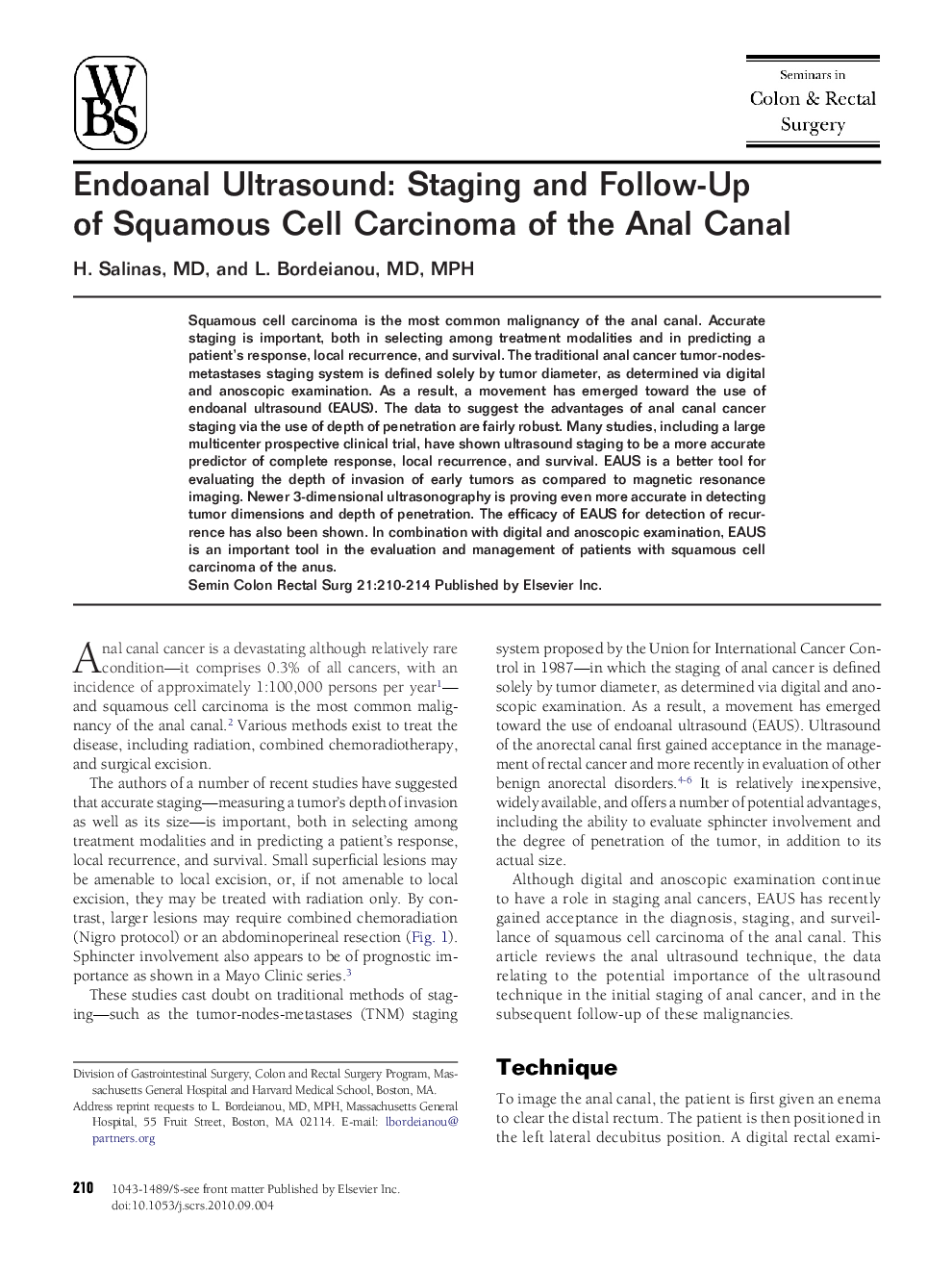| Article ID | Journal | Published Year | Pages | File Type |
|---|---|---|---|---|
| 3319310 | Seminars in Colon and Rectal Surgery | 2010 | 5 Pages |
Squamous cell carcinoma is the most common malignancy of the anal canal. Accurate staging is important, both in selecting among treatment modalities and in predicting a patient's response, local recurrence, and survival. The traditional anal cancer tumor-nodes-metastases staging system is defined solely by tumor diameter, as determined via digital and anoscopic examination. As a result, a movement has emerged toward the use of endoanal ultrasound (EAUS). The data to suggest the advantages of anal canal cancer staging via the use of depth of penetration are fairly robust. Many studies, including a large multicenter prospective clinical trial, have shown ultrasound staging to be a more accurate predictor of complete response, local recurrence, and survival. EAUS is a better tool for evaluating the depth of invasion of early tumors as compared to magnetic resonance imaging. Newer 3-dimensional ultrasonography is proving even more accurate in detecting tumor dimensions and depth of penetration. The efficacy of EAUS for detection of recurrence has also been shown. In combination with digital and anoscopic examination, EAUS is an important tool in the evaluation and management of patients with squamous cell carcinoma of the anus.
